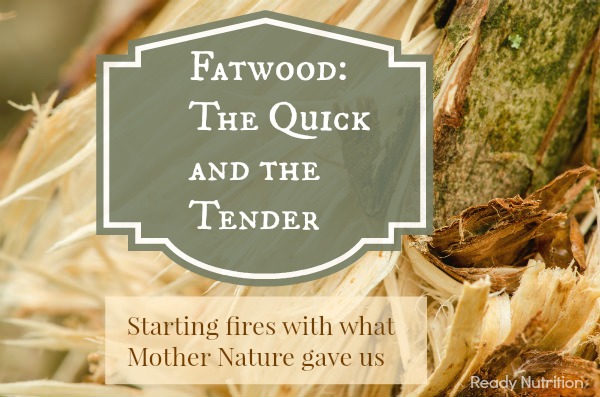When it comes down to it, you want your fires to start quickly and efficiently. Not using excessive fire starting materials (cardboard, paper, wood) can help you save these resources for another time. Fatwood is one of the most efficient ways to start a fire. The small bits of wood drip gooey sap into the fire, thus strengthening the flame. As well, you don’t need a lot of it to get a fire started. You can also use this natural firestarter outdoors and even in wet conditions.
You can easily purchase fatwood, but will end up paying $25-$50 for a case of it; or you can take a walk onto your property and find some on your own. Fatwood is made from the resinous remains of a pine tree that has died. When a pine tree dies, either upright or fallen, the sap settles into the branches and trunk. As the tree rots the sap hardens into resin soaked wood, this is the fatwood.
Locating Fatwood on a Dead Tree
The best spots to find fatwood is where the branches attach to the trunk or the roots if the tree remained standing for a while.Use a hatchet to knock and chop away all the soft, rotten wood. Find the fatwood at the joints of branches and trunk. Some other indicators of fatwood are:
- amber-orange colored wood
- distinctive smell
- wax-like feeling
Any tree that produces sap can be used, but some of the most popular for cultivating fatwood are the Georgia Pine, also known as the Longleaf Pine. These produce large amounts of sap.
Check out this video on how to process fat wood and get it ready for use.

